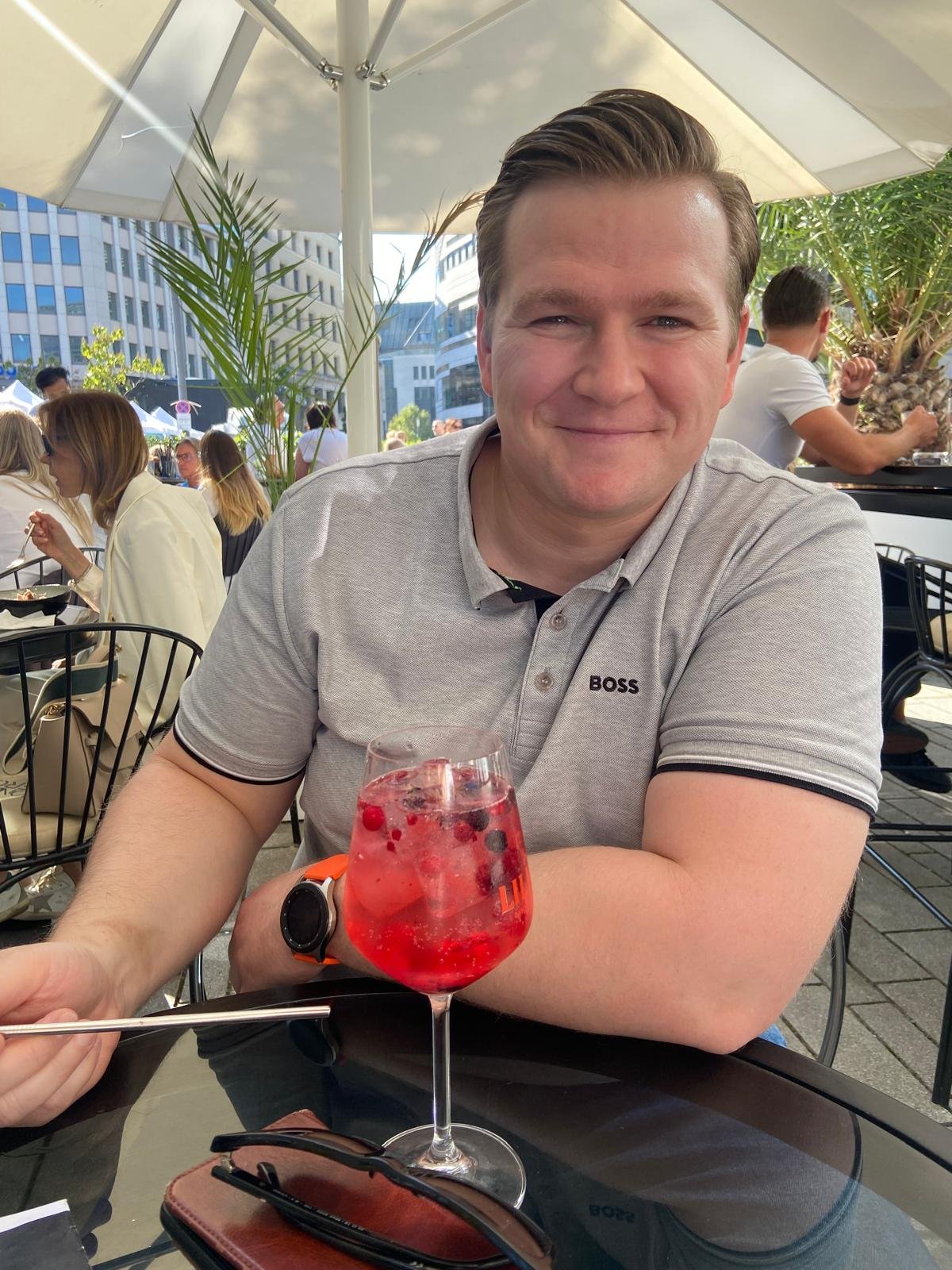"I don't have answers to many of life's questions."
Michiel Joris
“It's a major blow, both mentally and physically. I'm 33 years old and terminally ill… Suddenly, my time here has been drastically shortened.”
In August 2023, Michiel Joris was diagnosed with ALK+ lung cancer, which had metastasized. This diagnosis transformed his life overnight. Here is his brave account.
How did the doctor make the diagnosis?
After experiencing shortness of breath for some time, I went to the general hospital in Herentals for a lung examination, following my GP's advice. The diagnosis revealed that my left lung had collapsed, and there was a significant fluid buildup. Over the next few days, five liters of fluid were drained, and subsequent scans showed a large tumor. This led to a series of tests. Because of necrosis in the tumor, I developed a high fever, compounded by a COVID infection, which meant a 26-day hospital stay. A biopsy after bronchoscopy confirmed ALK+, and the PET scan indicated metastases.
The doctors and nurses were incredibly supportive, as was the entire team at the Herentals hospital. I had many questions at first, and my oncologist always took the time to answer them. I could also rely on the support of my fiancée, family, friends, GP, oncologist, physiotherapist, psychologist, dietician, and my fellow ALK+ Belgium patients.
What treatment did you receive?
I started on targeted drug therapy (alectinib), which is currently controlling the cancer. However, the side effects are significant. The fatigue, especially, is hard to bear. I also deal with fluid retention, constipation, black spots in my left eye, and more. And yes, I am 33 years old and terminally ill… It’s a major blow, both mentally and physically. Still, we have to try to stay positive.
What's next for you?
It’s only a matter of time before the cancer mutates and becomes resistant to alectinib. Some people remain stable for longer, but the median is between three and five years. After that, there’s a third-generation TKI (tyrosine kinase inhibitor), lorlatinib, which typically extends life by twelve to eighteen months. Not much is known about fourth-generation TKIs; they’re still in development. Go science! As a last resort, there’s chemotherapy, but unfortunately, there’s no cure. Immunotherapy is not an option for this rare cancer, nor is surgery. My oncologist can’t tell me how much time I have left, and that uncertainty is very challenging.
Health insurance fully covers the cost of my medication (approximately 6,000 EUR per month). Any additional costs, along with what’s not covered under health insurance, are paid by our supplementary hospital insurance.
You have gone back to work?
In January, I started working three half days a week. In April, I attempted to increase to two half days and two full days, but that wasn’t sustainable. Now, I work four half days a week. Recently, I began an onco-rehabilitation program at the hospital in Herentals, where group sports are part of the recovery process. This provides a good workout, which also benefits me mentally. Right now, we’re staying positive, though we still face many unanswered questions. Instead of planning for the long term, we’re preparing to say goodbye and putting things in order. It’s challenging to navigate this unfamiliar territory, where answers are often hard, if not impossible, to find.
"Right now, we’re staying positive, though we still face many unanswered questions."
What improvements could be made in healthcare?
The main issue is late detection. In January 2023, I had a cough and phlegm. At the end of March, my GP listened to my lungs and prescribed medication, which didn’t help. By early July, I was experiencing shortness of breath and went back to the doctor. The diagnosis came in August. However, my oncologist believes the disease had already been present for a year.

